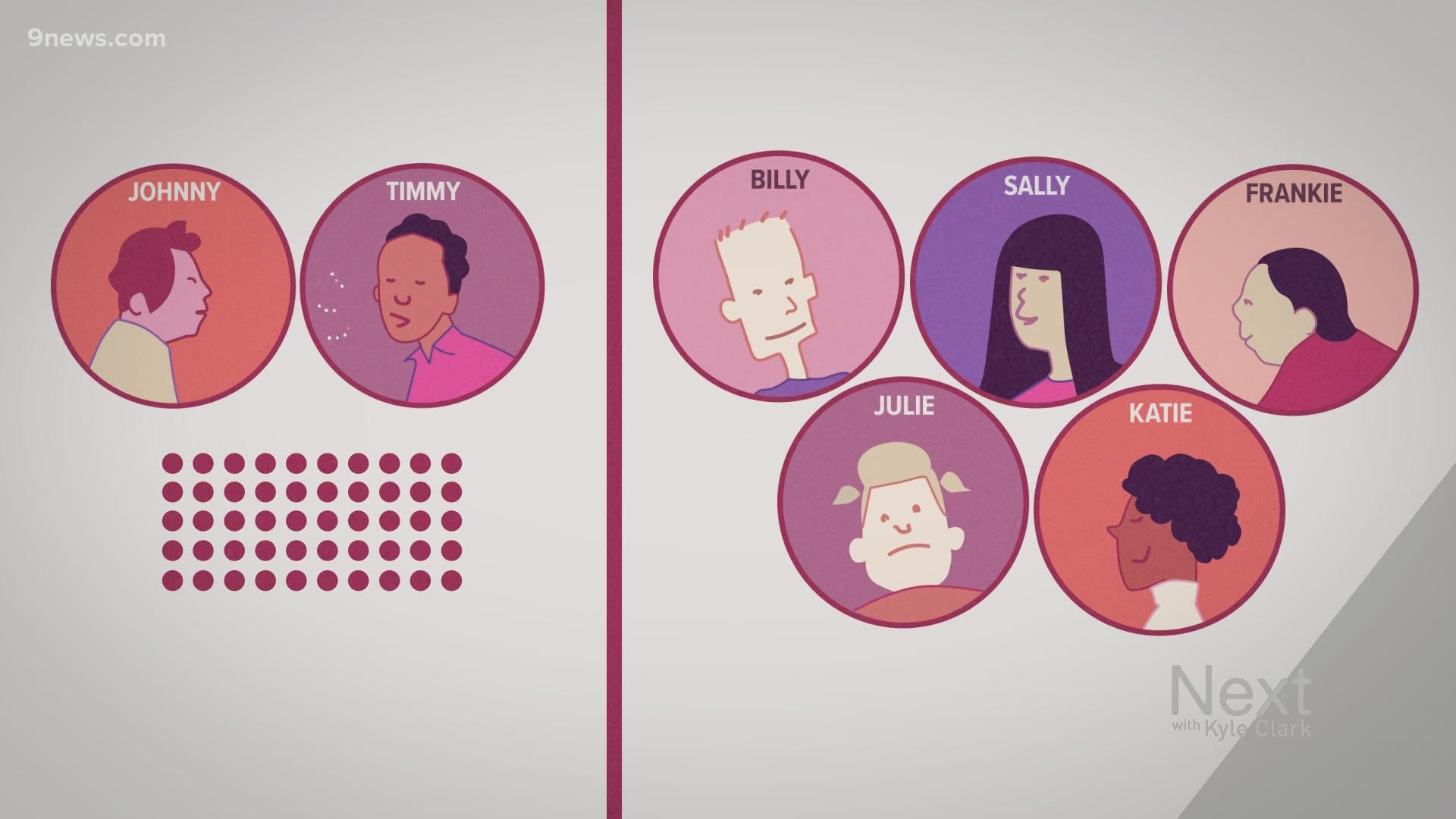DENVER — Get ready to hear a lot more about the word “cohorting.”
And, no, we’re not talking about the cohorts that, according to Merriam-Webster, involve “one of 10 divisions of an ancient Roman legion.”
We’re talking about a much simpler definition of the word.
Consider a cohort nothing more than a group.
And, when it comes to COVID-19, cohorts could prove an invaluable way to keep schools and businesses open as we move toward the end of the year.
A common term in sociology and education, cohorts are technically everywhere.
If you, for example, graduated in the class of 1996, like me, you were in a cohort with the rest of that class.
Schools have all sorts of cohorts. Each tend not to intermingle with other groups a lot.
The possible advantage of that becomes evident during a pandemic. If one group never intermingles with another, that group can’t easily spread a virus to the separate cohort.
It’s why schools will try to keep certain classes and grades from having daily interactions with other grades and other classes.
And the smaller the cohort, the fewer people will have to stay home should the novel coronavirus infect a student or teacher.
SUGGESTED VIDEOS: COVID-19 Coronavirus

